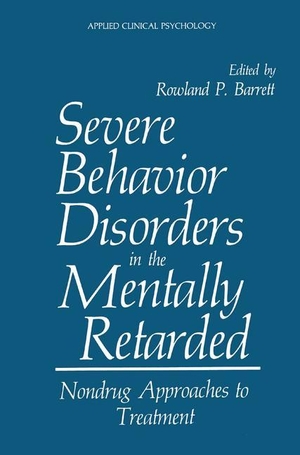Für statistische Zwecke und um bestmögliche Funktionalität zu bieten, speichert diese Website Cookies auf Ihrem Gerät. Das Speichern von Cookies kann in den Browser-Einstellungen deaktiviert werden. Wenn Sie die Website weiter nutzen, stimmen Sie der Verwendung von Cookies zu.
Cookie akzeptieren
Severe Behavior Disorders in the Mentally Retarded
- Springer US
- 1986
- Gebunden
- 432 Seiten
- ISBN 9780306421624
It is well known that behavior problems are a salient characteristic of children and adults with mental retardation. That is not to say that all persons with mental retardation experience behavior disorders; how ever, most studies indicate that the incidence of emotional disturbance in this population is four to six times greater than that observed in similar intellectually nonhandicapped children and adults. It is equally well known that the principal form of treatment accorded clients with mental retardation and behavior disorders is pharmacotherapy or the prescrip tion of behavior modifying drugs. Recent studies show that 6 out of every 10 individuals with mental retardation have been
Mehr
Weniger
zzgl. Versand
in Kürze